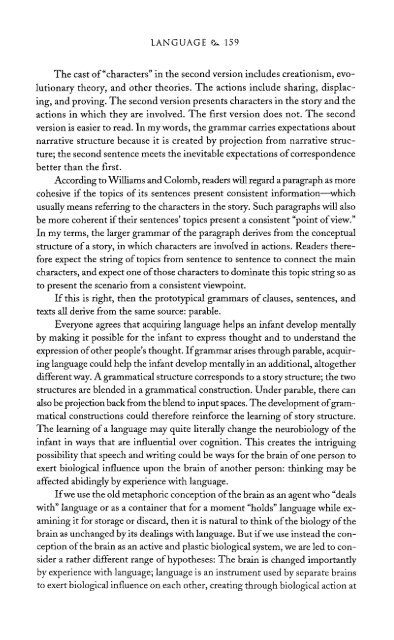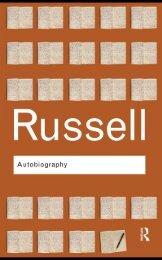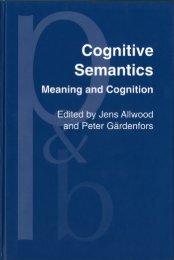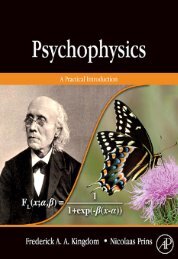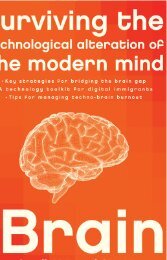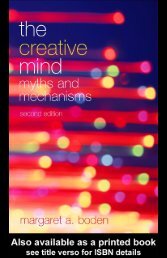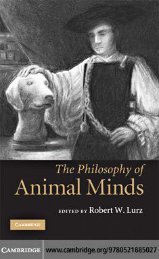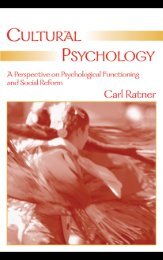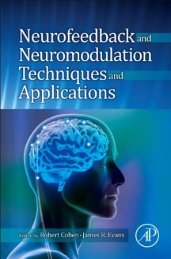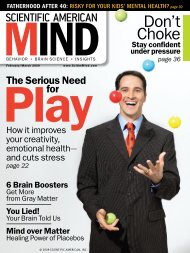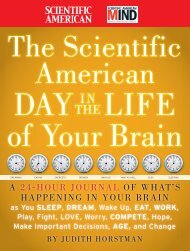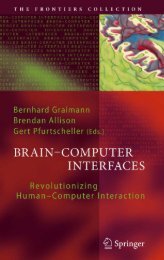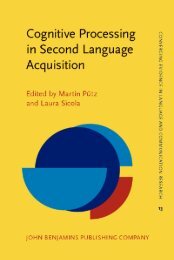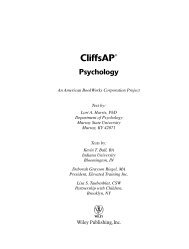The Literary Mind.pdf
The Literary Mind.pdf
The Literary Mind.pdf
You also want an ePaper? Increase the reach of your titles
YUMPU automatically turns print PDFs into web optimized ePapers that Google loves.
LANGUAGE 159<br />
<strong>The</strong> cast of "characters" in the second version includes creationism, evolutionary<br />
theory, and other theories. <strong>The</strong> actions include sharing, displacing,<br />
and proving. <strong>The</strong> second version presents characters in the story and the<br />
actions in which they are involved. <strong>The</strong> first version does not. <strong>The</strong> second<br />
version is easier to read. In my words, the grammar carries expectations about<br />
narrative structure because it is created by projection from narrative structure;<br />
the second sentence meets the inevitable expectations of correspondence<br />
better than the first.<br />
According to Williams and Colornb, readers will regard a paragraph as more<br />
cohesive if the topics of its sentences present consistent information—which<br />
usually means referring to the characters in the story. Such paragraphs will also<br />
be more coherent if their sentences' topics present a consistent "point of view."<br />
In my terms, the larger grammar of the paragraph derives from the conceptual<br />
structure of a story, in which characters are involved in actions. Readers therefore<br />
expect the string of topics from sentence to sentence to connect the main<br />
characters, and expect one of those characters to dominate this topic string so as<br />
to present the scenario from a consistent viewpoint.<br />
If this is right, then the prototypical grammars of clauses, sentences, and<br />
texts all derive from the same source: parable.<br />
Everyone agrees that acquiring language helps an infant develop mentally<br />
by making it possible for the infant to express thought and to understand the<br />
expression of other people's thought. If grammar arises through parable, acquiring<br />
language could help the infant develop mentally in an additional, altogether<br />
different way. A grammatical structure corresponds to a story structure; the two<br />
structures are blended in a grammatical construction. Under parable, there can<br />
also be projection back from the blend to input spaces. <strong>The</strong> development of grammatical<br />
constructions could therefore reinforce the learning of story structure.<br />
<strong>The</strong> learning of a language may quite literally change the neurobiology of the<br />
infant in ways that are influential over cognition. This creates the intriguing<br />
possibility that speech and writing could be ways for the brain of one person to<br />
exert biological influence upon the brain of another person: thinking may be<br />
affected abidingly by experience with language.<br />
If we use the old metaphoric conception of the brain as an agent who "deals<br />
with" language or as a container that for a moment "holds" language while examining<br />
it for storage or discard, then it is natural to think of the biology of the<br />
brain as unchanged by its dealings with language. But if we use instead the conception<br />
of the brain as an active and plastic biological system, we are led to consider<br />
a rather different range of hypotheses: <strong>The</strong> brain is changed importantly<br />
by experience with language; language is an instrument used by separate brains<br />
to exert biological influence on each other, creating through biological action at


